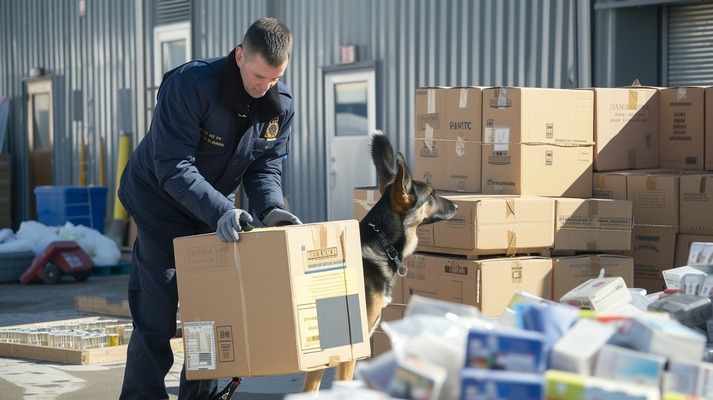German Shepherds excel in cargo screening due to their sharp senses, determination, and adaptability. Their ability to detect complex scents and focus in chaotic environments makes them indispensable. From foundational training to overcoming cargo-specific challenges, their journey highlights the effectiveness of structured training programs. The German Shepherd’s role in security continues to grow as trainers refine their techniques and adapt to evolving threats.
Initial Assessment and Core Training
The training process begins with evaluating each German Shepherd’s natural abilities and temperament. Trainers assess their strengths and weaknesses to customize their training regimen. Once assessed, basic obedience training follows. Commands such as “sit” and “search” establish control and communication. Trainers at Kwamandla Protection Services (KPS) emphasize precision and consistency, using positive reinforcement to encourage quick compliance.
Developing Scent Detection Skills
After mastering obedience, German Shepherds transition to scent detection exercises. Initially, they associate specific odors with rewards, starting with simple scent samples. Trainers then introduce real-world scenarios by hiding items in crates stacked to mimic cargo conditions. German Shepherds adapt quickly, learning to focus despite distractions. The complexity of detection exercises increases over time, with trainers incorporating multiple scents and challenging environments to refine their skills.
Overcoming Cargo-Specific Challenges
Cargo environments pose unique challenges. German Shepherds must navigate tight spaces, ignore distractions, and detect substances hidden within layered cargo. Heat, dust, and noise can interfere with detection, requiring trainers to condition the dogs for such conditions. At KPS, trainers desensitize German Shepherds to loud cargo docks and teach them to work through dust clouds. Regular practice ensures they remain sharp even in high-pressure scenarios.
Simulating Real Cargo Work
To prepare German Shepherds for real-world deployment, trainers conduct full-scale cargo drills. These exercises involve loading trucks with hidden targets, testing the dogs under time pressure. Forklifts and heavy machinery create a realistic working environment. German Shepherds learn to maneuver through obstacles and maintain focus despite the surrounding chaos. The German Shepherd’s role in these drills proves their ability to handle high-pressure scenarios and adapt to real-world security needs.
The Role of Bonding and Patience
German Shepherds’ strong-willed nature requires patience and repetition. Trainers build trust through consistent interaction, turning potential stubbornness into an asset. Establishing a strong bond enhances the dog’s motivation and reliability. This connection is crucial in high-stress environments where clear communication between the trainer and the German Shepherd can mean the difference between success and failure.
Success in Cargo Screening
Through dedicated training, German Shepherds prove their effectiveness in cargo screening. Their ability to detect hidden contraband, adapt to complex environments, and remain focused under pressure makes them valuable assets. For example, Sombra, a six-year-old German Shepherd, has helped Colombia’s police detect more than 2,000 kilos of cocaine hidden in suitcases, boats, and large shipments of fruit. These success stories reinforce the importance of rigorous training and the breed’s suitability for security roles.
The Future of German Shepherds in Cargo Security
With continued advancements in training techniques, German Shepherds will become even more efficient in cargo screening. Their keen senses, work ethic, and adaptability make them well-suited for evolving security needs. As more organizations recognize their capabilities, German Shepherds will play an even greater role in cargo security worldwide.
Conclusion
The German Shepherd’s role in cargo screening showcases their intelligence, resilience, and ability to tackle complex challenges. Through structured training, exposure to real-world conditions, and a strong bond with trainers, these dogs master the skills needed for cargo security. Their impact is undeniable, and with ongoing training, they will continue to enhance safety in cargo screening operations.






